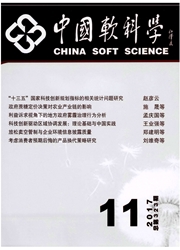

 中文摘要:
中文摘要:
公司资本结构决策及其经济后果历来是学术界与实务研究的热点问题。现有研究通常假设公司财务决策是自身特征的函数且不受同行业公司影响,而笔者的研究表明同行公司的资本结构决策行为是公司财务政策的重要参考依据。使用中国上市公司2007—2013年的数据,构建固定效应模型,研究发现公司短期借款和商业信用与同行公司特质回报显著负相关,上市公司通过短期债务学习同行公司的资本结构调整行为。研究进一步发现公司资本结构决策变化是对同行业公司资本结构决策行为的反应,而非应对同行公司其他特征变化所做的调整,且盈利性较低以及规模较小公司作为效仿者会学习盈利性较高以及规模较大公司等行业领袖资本结构决策行为,但反之不成立。研究结论表明上市公司间资本决策行为在一定程度上具有学习效应,这将有助于我们在我国特殊制度情境下更为深刻地理解上市公司资本结构行为,同时亦为国内现有相关研究提供补充性的经验证据。
 英文摘要:
英文摘要:
Capital structure has been the heated topic among academia and practice field. Existing research has been generally ignored peer's behavior. This study shows that companies in the same industry capital structure decision-making behaviorism provide important reference for the peer company's financial policy. In this paper,using Chinese listed companies in 2007-2013 data and fixed effect model,we find that the peer companies' idiosyncratic return are significantly negatively correlated with the company's short term loan and trade credit. The companies adjust short term debt through learning peer companies' capital structure decisions. Furthermore,we find that the company's capital decision making is affected by changes in the peer companies' capital decisions rather than deal with the adjustment made by peer companies' other features. In addition,we also find that low profitability and small size companies learning effect is obvious,but the industry leader is not obvious. Our findings show that capital structure decision shows significant learning effcet among listed firms to some extent,which helps us get better understanding of capital structure decisions and enrich empirical evidence to related research in China.
 同期刊论文项目
同期刊论文项目
 同项目期刊论文
同项目期刊论文
 期刊信息
期刊信息
